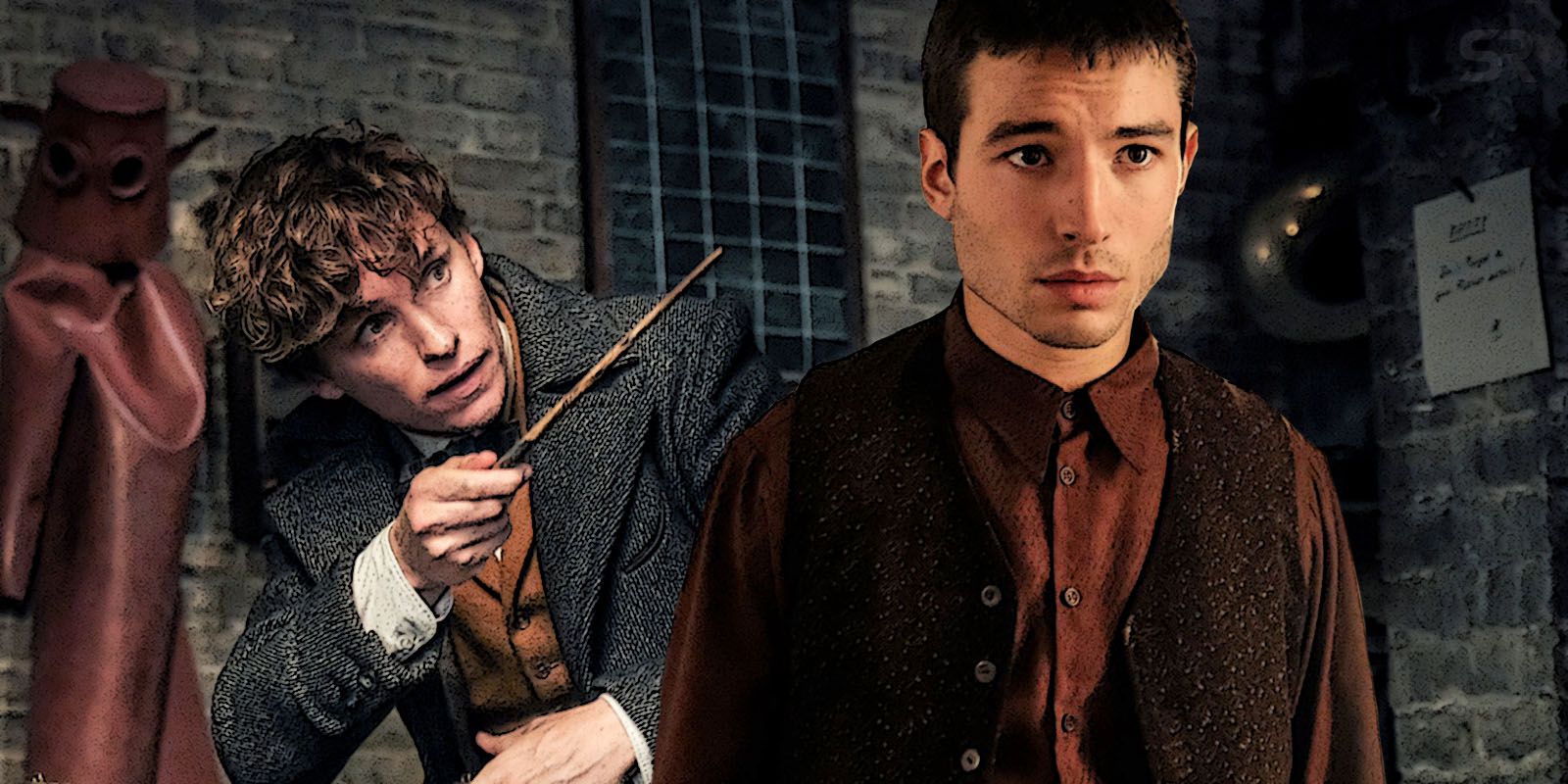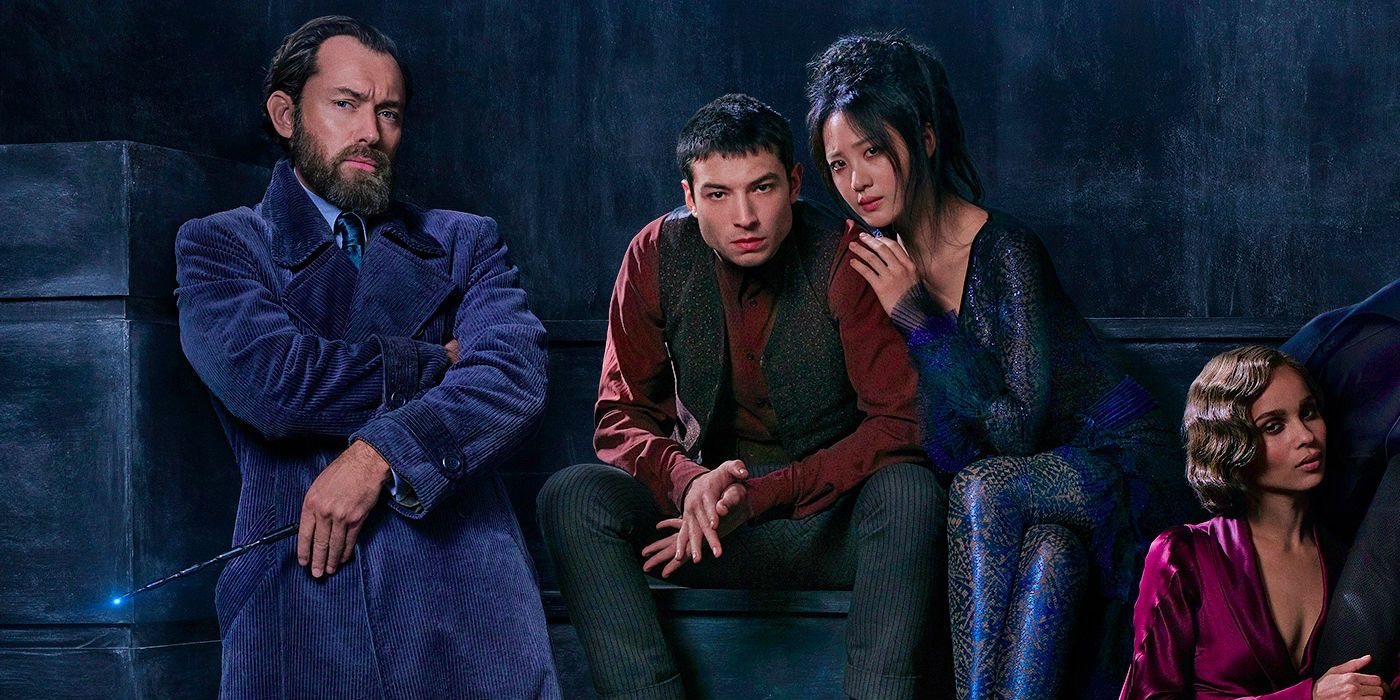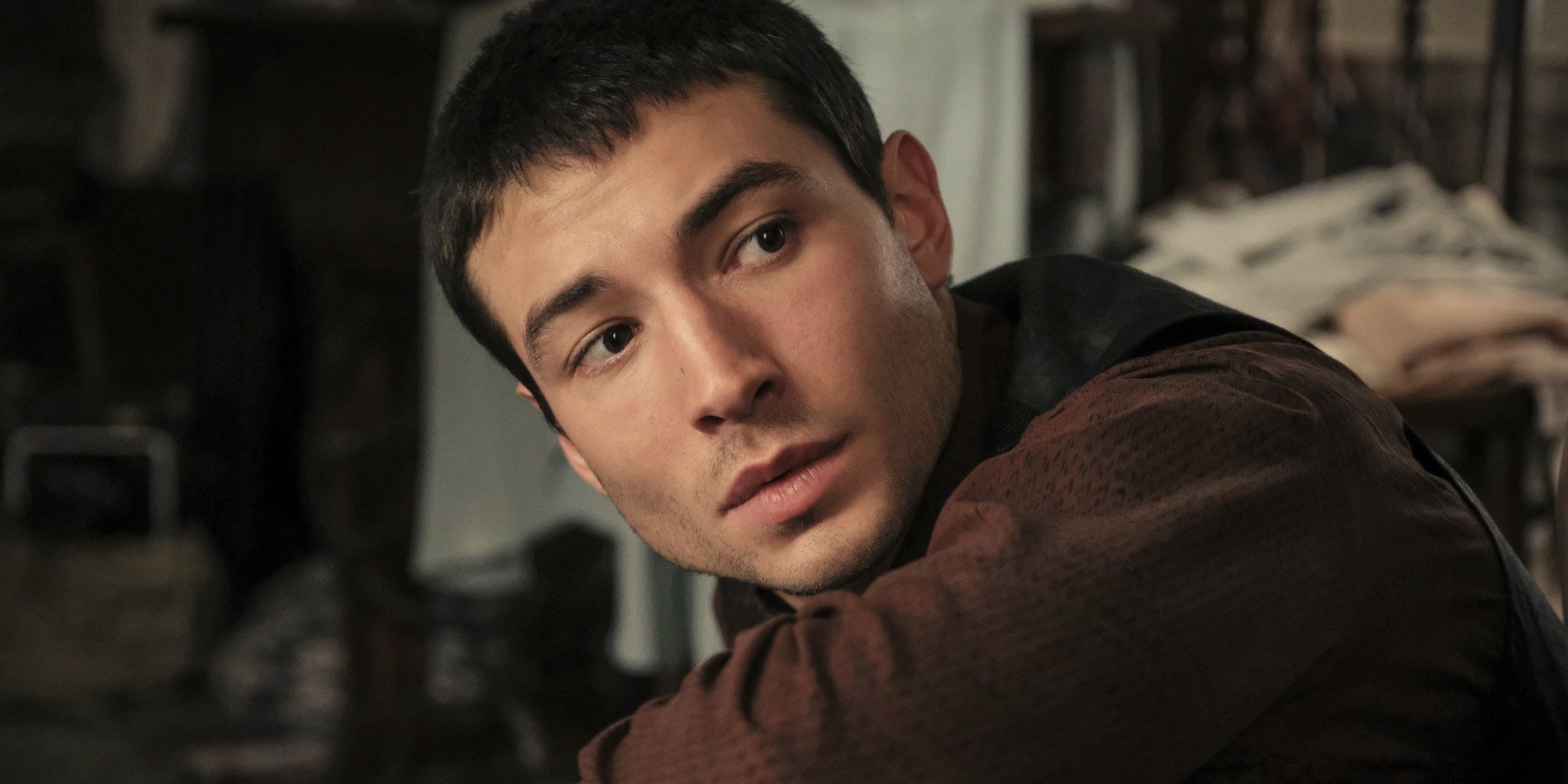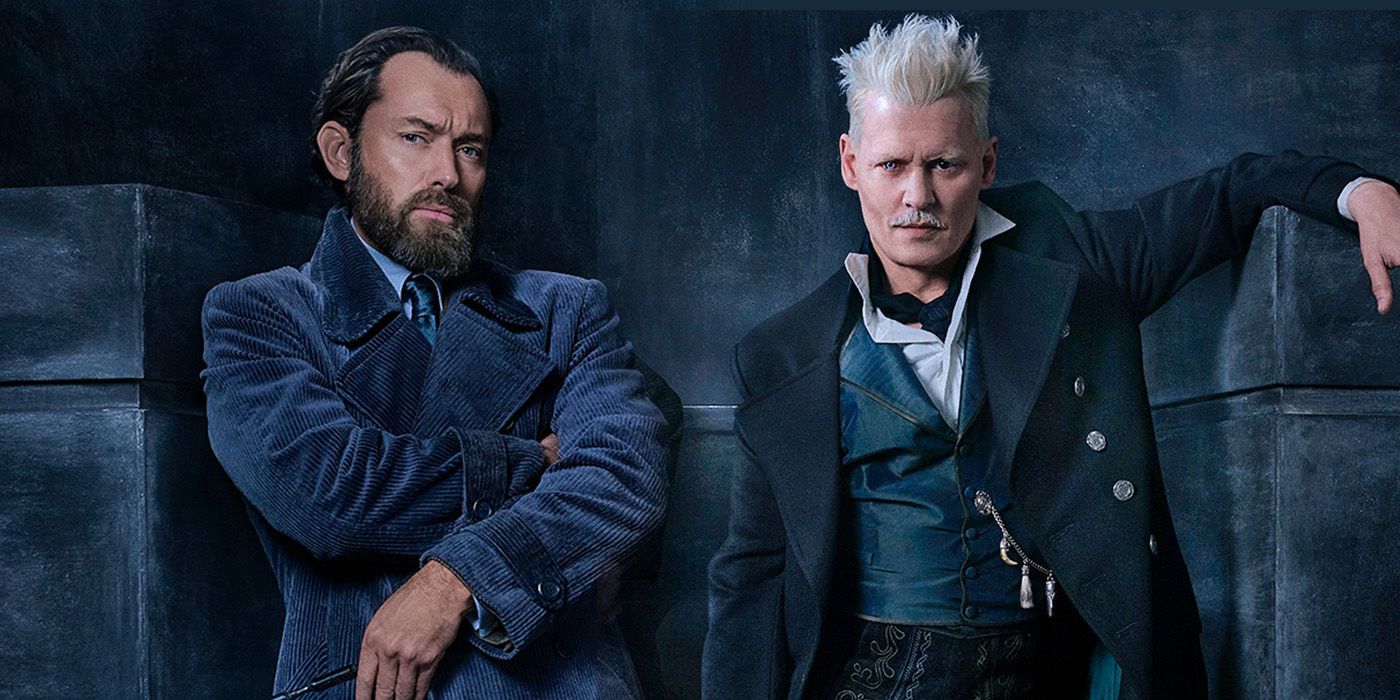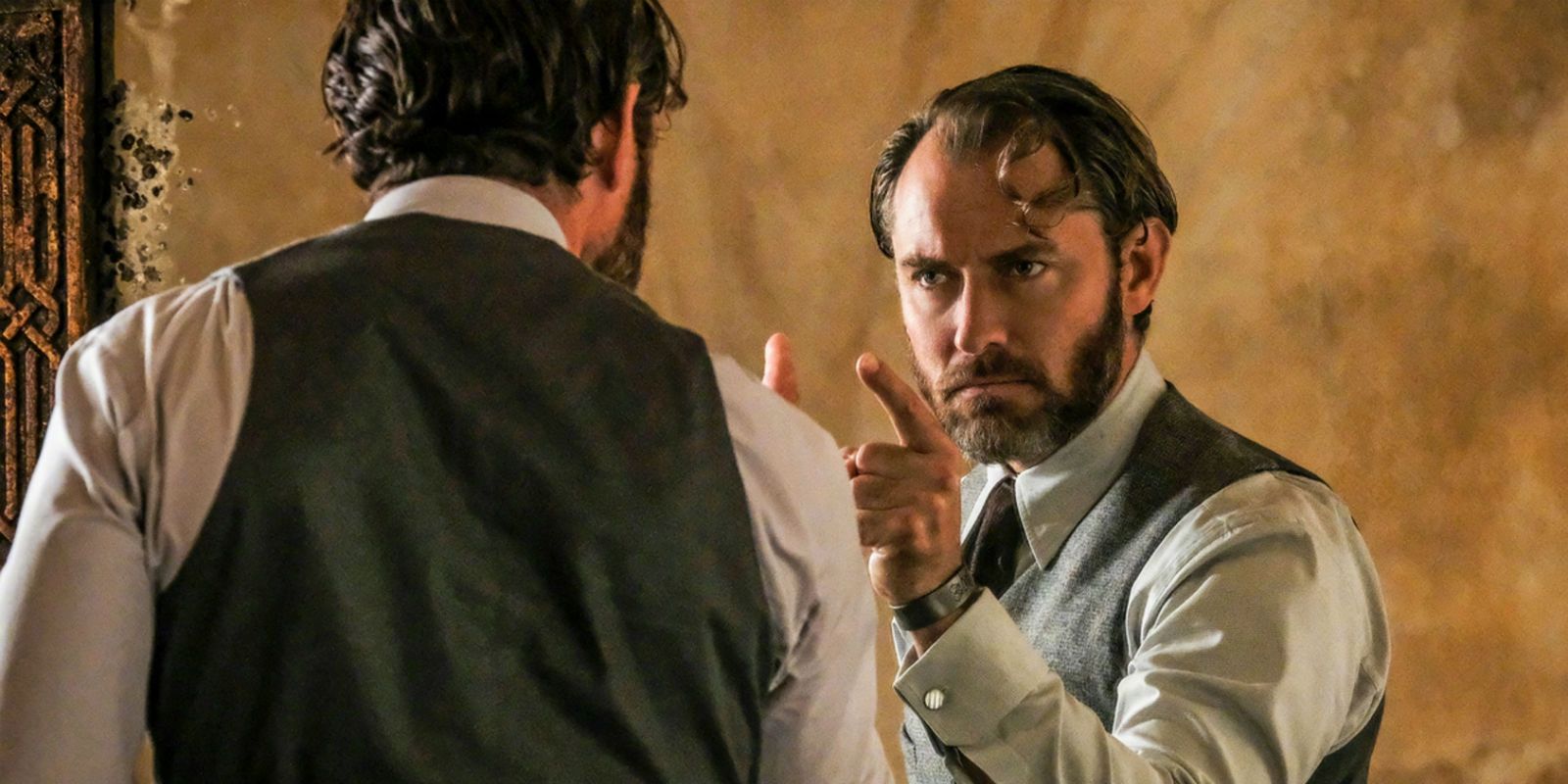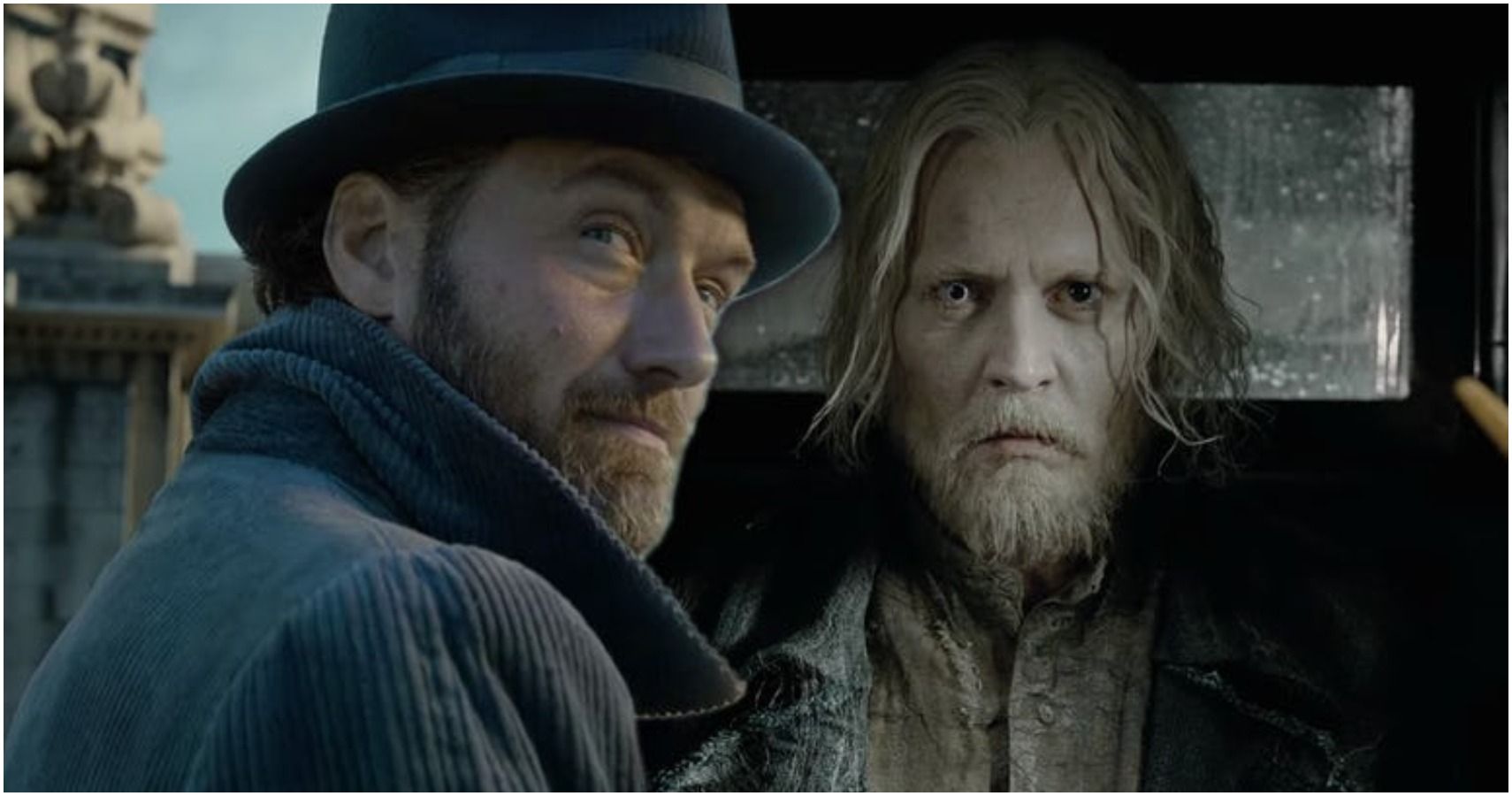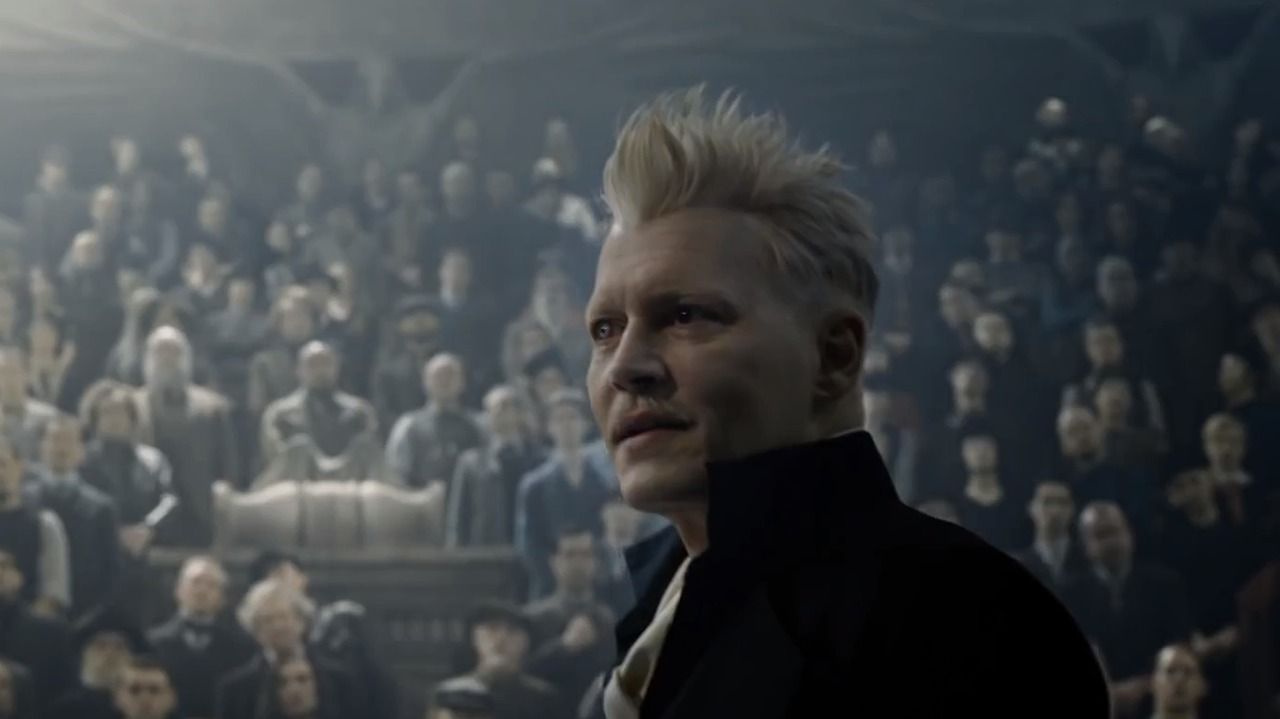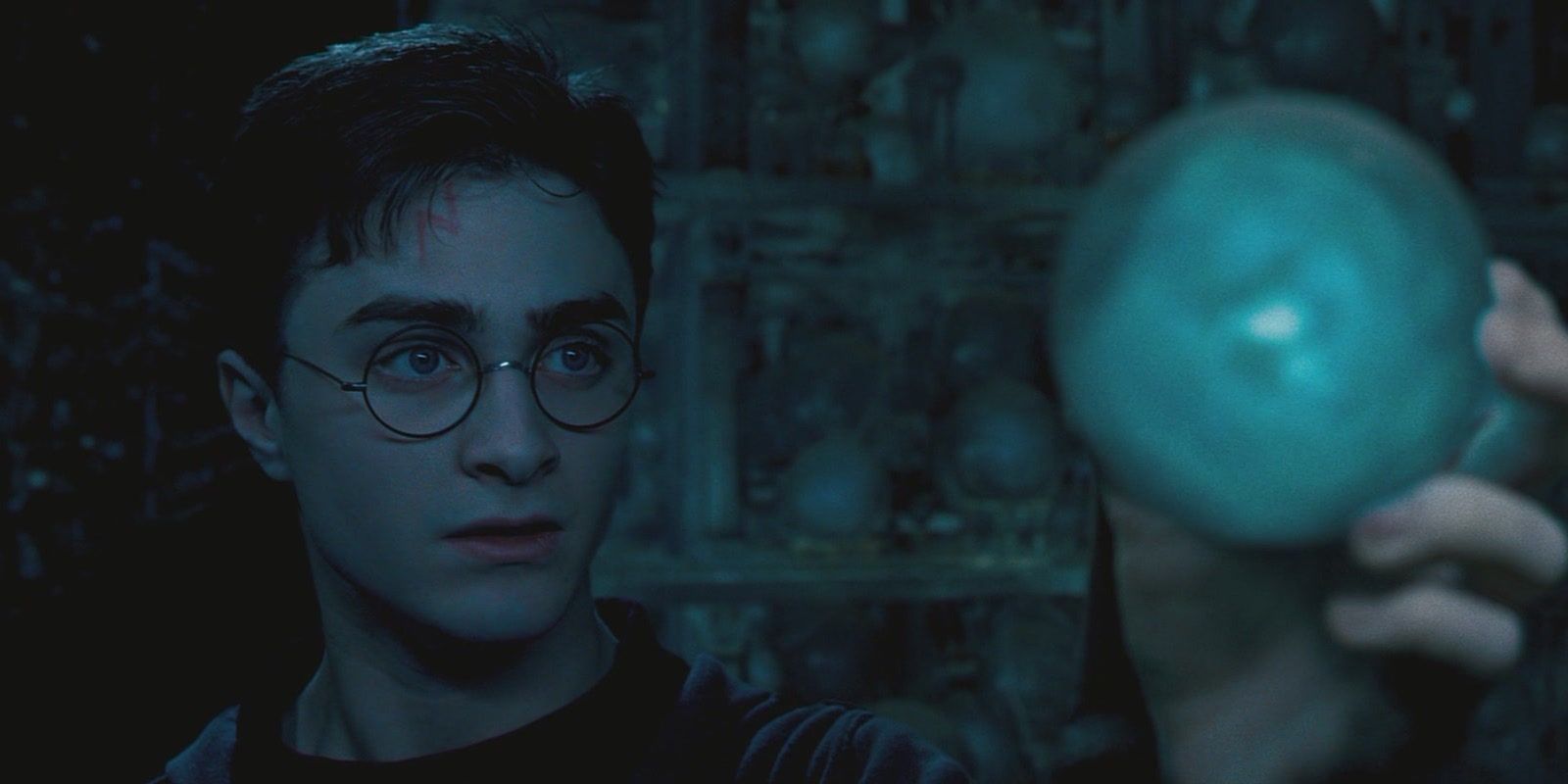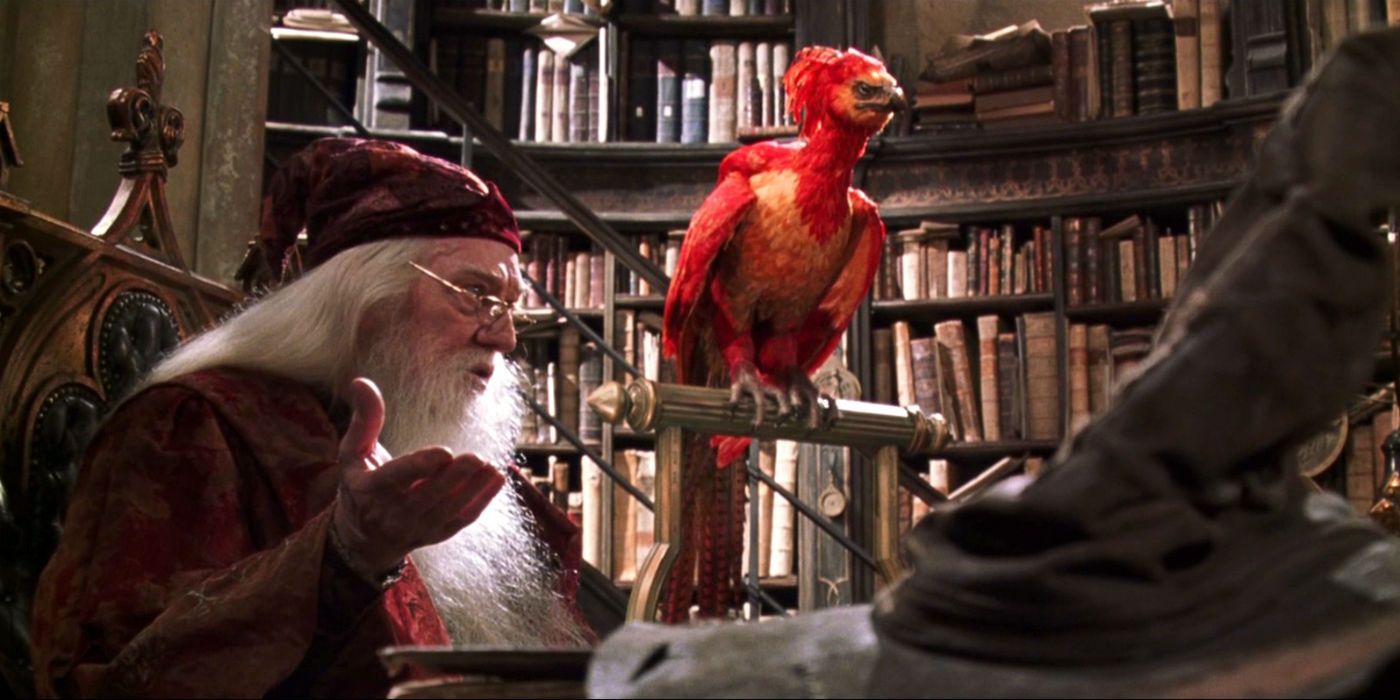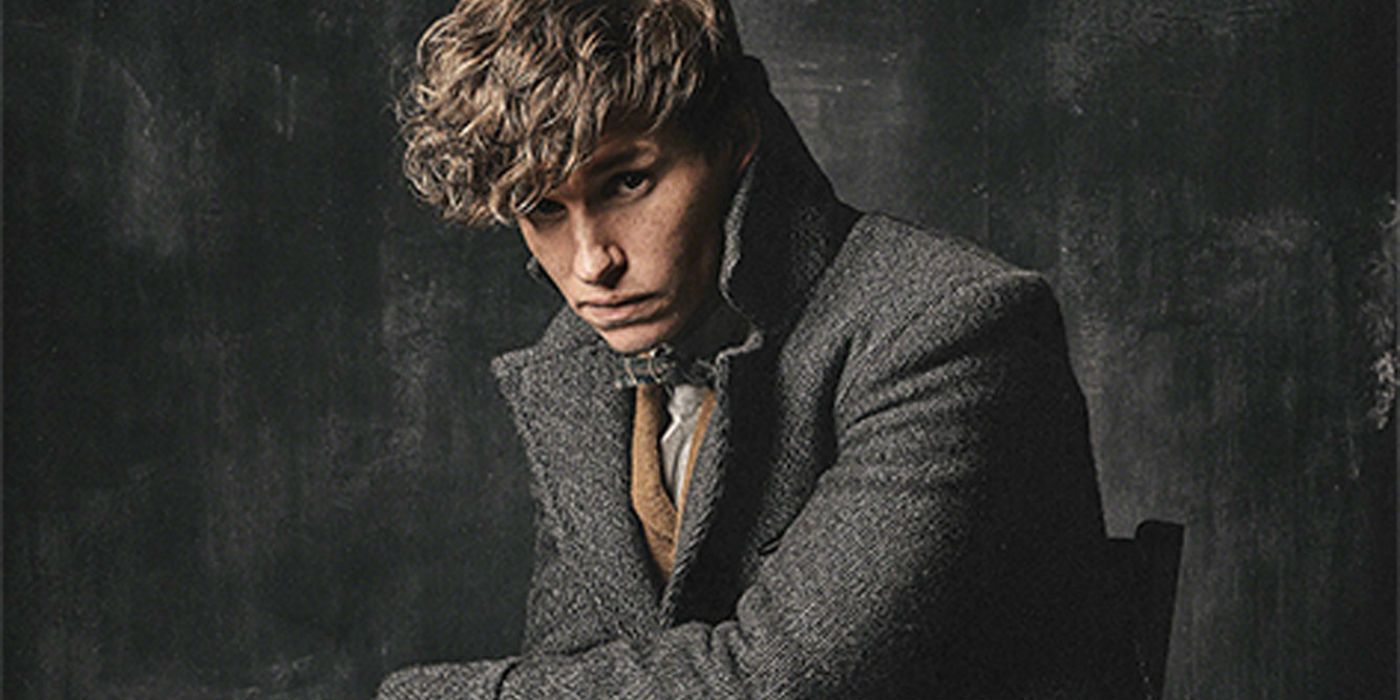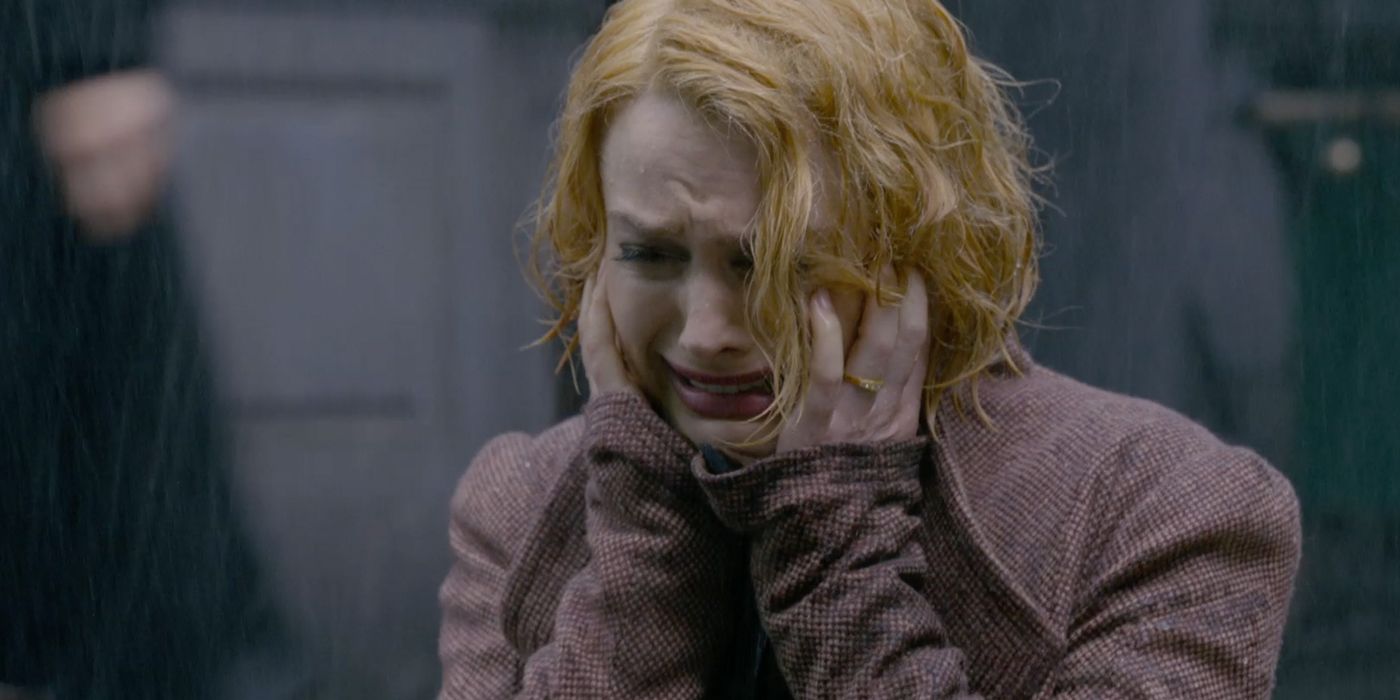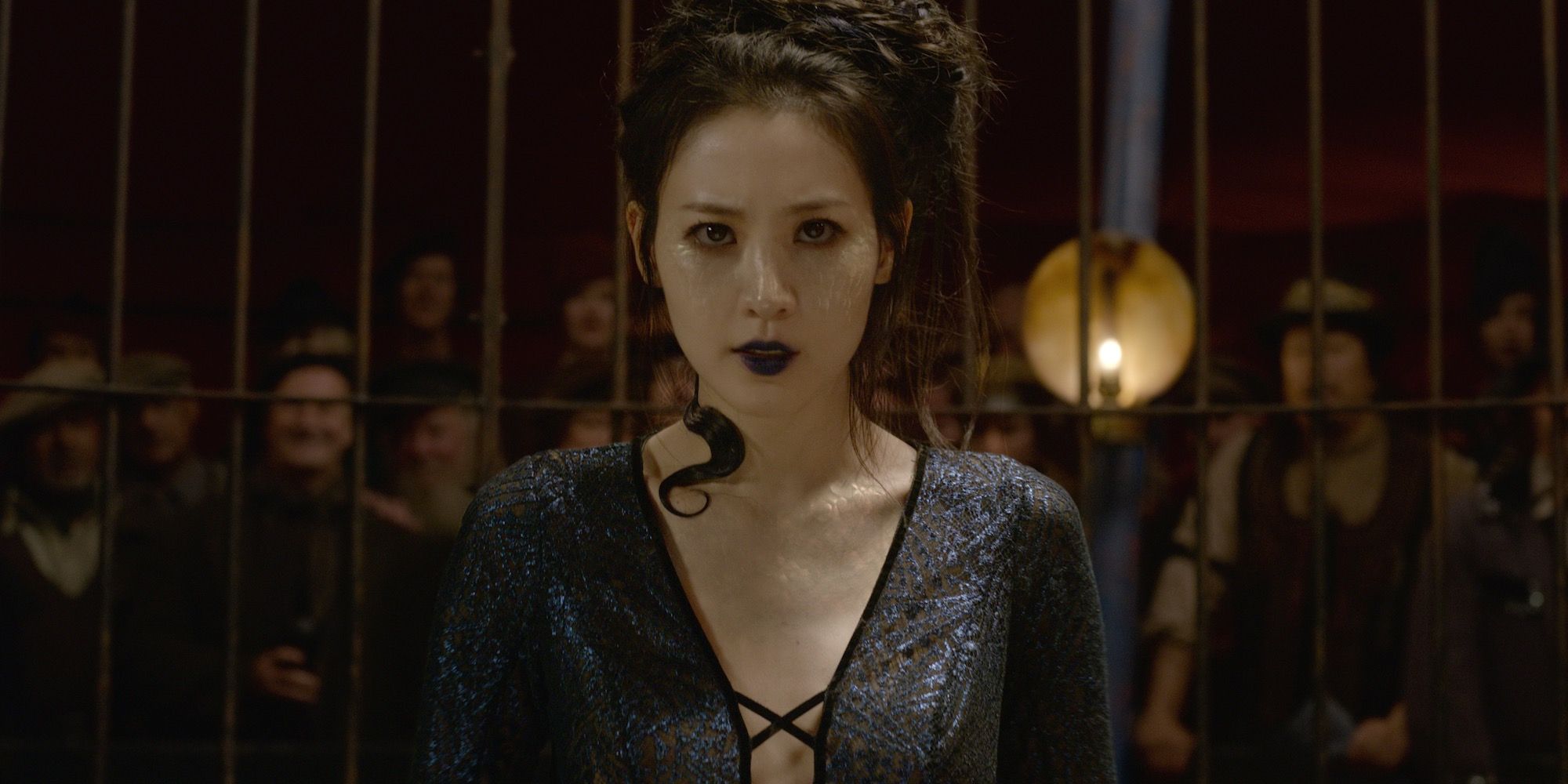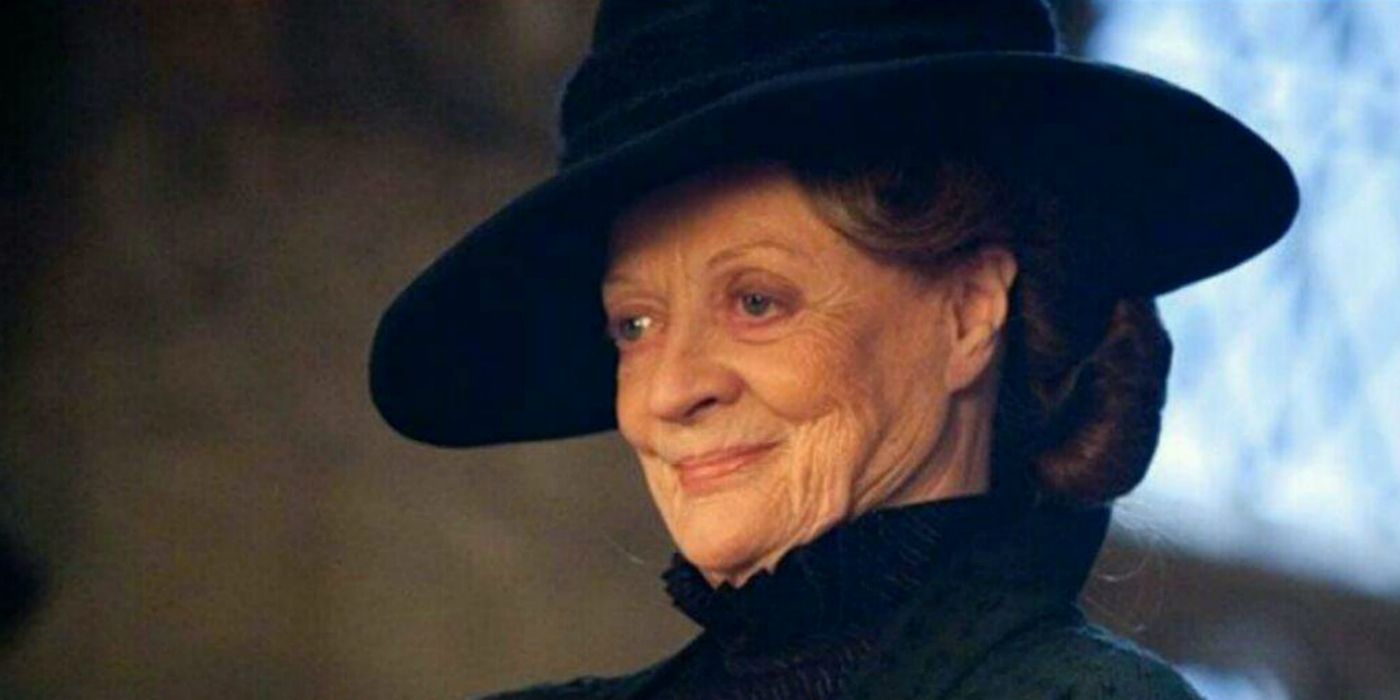Warning: Major SPOILERS ahead for Fantastic Beasts: The Crimes of Grindelwald
Fantastic Beasts: The Crimes of Grindelwald has arrived in cinemas, but the latest Wizarding World movie raises far more questions than it answers.
The follow-up to 2016's Fantastic Beasts and Where To Find Them, Crimes of Grindelwald continues the story of Newt, Tina, Jacob, and Queenie, but with a much heavier focus on the newly-escaped Gellert Grindelwald too, alongside franchise newcomer and Harry Potter legend, Albus Dumbledore (now played by Jude Law).
Related: Fantastic Beasts 2: Cast, Character, & Harry Potter Connection Guide
The result is a movie that charts part of Grindelwald's rise to power, and explains exactly why Dumbledore is unable to move against him. It also makes some pretty shocking reveals along the way, but all of that means the movie, which is just the second in a planned series of five movies, is much more concerned with setting things up than it is standing on its own two feet, and leaves a lot to be explored in Fantastic Beasts 3 and beyond.
- This Page: Questions About Credence and Dumbledore
- Page 2: The Tycho Dodonus Prophecies, World War II, and More
- Page 3: Professor McGonagall's Age, Queenie's Decision, and More
How Is Credence Related To Dumbledore?
Fantastic Beasts: The Crimes of Grindelwald ends with a major twist, and one of the biggest cliffhangers J.K Rowling has ever produced: Credence Barebone is, in fact, Aurelius Dumbledore, brother of Albus. The fact this comes from the mouth of Grindelwald, and is designed to make Credence move against Albus, will mean people are going to question its legitimacy, but that would be a move so cheap it'd risk derailing the whole franchise, so we can almost certainly say it's the truth, or at least, is true from a certain point-of-view.
Aurelius can't be the son of both Kendra and Percival Dumbledore, Albus' parents, since we know Kendra died in 1899, and there's no mention of him alongside Albus, Aberforth, and Ariana, so he had to come later. That could mean he's Albus' half-brother through his father, although he was already in Azkaban by then, and died there (or so Dumbledore believes). Could he have secretly escaped, or managed to impregnate someone within the walls of Azkaban without the Dementors knowing/caring? It's just about possible.
Another possibility is that Grindelwald is talking to the Obscurus inside Credence; that it is the same Obscurus that lived inside Ariana, and has found a new host in Credence after her death. That, too, leaves questions as to exactly who Credence/Aurelius is, and whether he is also related to Dumbledore somehow (the wider Dumbledore family has not been explained much), is he someone else entirely (and thus still a mystery), or is he quite literally a twin to the Obscurus, in that it has managed to manifest itself a new Obscurial to be its host?
Related: Fantastic Beasts: The Crimes Of Grindelwald's Credence Twist Explained
Who Put Credence/Aurelius On The Boat?
Regardless of how Credence came into being, there's one thing we do know about him: he was put on a boat, alongside Leta and Corvus Lestrange, that ended up taking him to America, where he was adopted by Mary Lou Barebone (whose upbringing of him is believed to have turned him into an Obscurial, further muddying the waters of his origin).
We know that Credence/Aurelius was traveling with his aunt, or someone claiming to be his aunt, but have no further information about who she actually is, or if someone else put them on the boat in the first place.
How Much Does Dumbledore Know?
Albus Dumbledore isn't the kind of person to be in the dark. As Arthur Weasley once noted, he "doesn't miss a trick." So just how much does he know about Credence and their relationship?
For once, it would seem, Dumbledore knows almost nothing. Aurelius has never been mentioned in Harry Potter canon before now, which is why this twist is such a shock. Is it possible that Albus, as of The Crimes of Grindelwald at least, knows he has a brother who is an Obscurial? Grindelwald wants Aurelius to think that, but it's difficult to see how exactly he would - especially when he talks about Credence earlier in the movie as if he doesn't. That said, it's not beyond him to withhold things.
Related: Fantastic Beasts: The Crimes Of Grindelwald Review - Needs More Magic
What Does Dumbledore's Mirror Of Erised Vision Mean?
A few key pieces of Harry Potter iconography return in this movie, and among them is the Mirror of Erised. Revealed in the very first book to be a powerful magical object that shows the person standing in front of it their deepest, darkest desire, it appears to have a different use here.
When Dumbledore looks into the Mirror, he sees the blood oath he made with Grindelwald, before the older version of his former friend appears before him. But what exactly is this suggesting?
The first part, with the flashback to the blood oath, makes the Mirror work more like a Pensieve, and it's difficult to understand what the 'desire' is here. If it were to undo the blood oath, which Dumbledore regrets, then that's what he'd see. If it were to be with Grindelwald now, with his old friend, not an evil wizard, then that too is what we'd see. Instead, it might simply be Dumbledore's longing for the time he truly felt close to someone; for the one time someone really understood him, perhaps even loved him.
Page 2: The Tycho Dodonus Prophecies, World War II, and More
How Does Dumbledore Break The Blood Oath?
Dumbledore reveals early in the movie that Newt has to move against Grindelwald because he can't, but it's only later we come to know why: the pair made a blood pact, meaning they cannot fight each other. Except, of course, that is what they end up doing in their famous duel in 1945, the event the Fantastic Beasts franchise is gradually building up to.
That means the blood oath needs to be broken, but given how little we really know of this kind of magic - the closest approximation is the Unbreakable Vow, which, well, can't be broken - it's unclear just how that's going to happen.
Does Grindelwald Work With Or Against Hitler?
While we know that Grindelwald wants to rule over Muggles, the movie finds him trying a slightly different marketing tactic. It still fits with the 'greater good' we've come to associate with him, but he presents the human wars to come, and the wizard lives that will be lost too, as reason to stand with him in his drive to create a new world order.
World War II imagery factors heavily into this, and since the series will overlap with the conflict, it's going to be hard for it to ignore. Grindelwald, like Voldemort before him, has already been used as a pseudo-Hitler, so does that mean he'll actually work with him during WW2? Or, since Hitler was still a Muggle, will he actually work against him 'for the greater good'?
Related: Fantastic Beasts: The Crimes Of Grindelwald's Ending & Twists Explained
Who Does The Prophecy Refer To?
A son cruelly banished. Despair of the daughter. Return, great avenger. With wings from the water.
Harry Potter has a long history with prophecies, and now there's a new one to throw into the mix, courtesy of The Crimes of Grindelwald and Tycho Dodonus, who made it. But what does it mean, and to whom does it refer?
The first reading is that the son is Corvus Lestrange, who is rumored to be alive (and be Credence), with Leta being the despairing daughter. Yusuf Kama believes himself to be the 'great avenger', hence his Unbreakable Vow. And the wings from the water refers to the boat ride that killed Corvus.
But, of course, Credence ISN'T Corvus. Instead, he's Aurelius Dumbledore, which changes how we see the entire prophecy. If we then take it that the 'son cruelly banished' is Aurelius, who was sent to America for reasons unknown and kept hidden, then it becomes about his return - he's back to discover who his family is, and now to take down his brother, i.e. 'great avenger' - with the despairing daughter being Ariana, and the wings of the water being both the boat and sea, but also, perhaps, how his Obscurus moves.
Even that might be too simple though. This is the Wizarding World, after all, where prophecies aren't always as they seem. Instead of avenging Albus Dumbledore, then, could it mean Credence/Aurelius will ultimately play a part in Grindelwald's defeat? Or is there another reading to the prophecy?
Related: Fantastic Beasts 2: 20 Things You Completely Missed In Crimes Of Grindelwald
Is The Phoenix Really Fawkes?
While we already knew that Albus Dumbledore had a special connection to phoenixes, through both Fawkes and his Patronus, The Crimes of Grindelwald expands that to encompass the entire family, establishing a mythical link between them and the creatures, who'll appear in their time of need.
This is then used as a means of hammering home the point that Credence actually is Aurelius, with a phoenix bursting forth right at the very end. This could just be any old phoenix, of course, but might it really be Fawkes? We don't yet know how Albus came to possess the creature, only that they have a serious bond. Did Fawkes appear to Aurelius first then, before transferring his allegiance to Albus, either because he had a greater need, or after Aurelius' death?
Page 3: Professor McGonagall's Age, Queenie's Decision, and More
How Does Newt Fit Into The Story?
Ever since it was revealed that the sequel to Fantastic Beasts and Where to Find Them would be subtitled The Crimes of Grindelwald, and that it's part of a five-movie plan, it's been clear that the franchise will grow beyond Newt Scamander.
Eddie Redmayne's magizoologist is still important to the story here, but you can already feel him being pushed further to the side. The movie is more interested in The Crimes of Grindelwald than it is Fantastic Beasts, and that's only going to intensify as it builds towards the 1945 duel.
Related: Fantastic Beasts 2: 10 Biggest Spoilers From The Crimes Of Grindelwald
That means it needs to focus in more on Grindelwald's rise and dominance, alongside his relationship with Dumbledore and how he is eventually able to move against him, and now there's Aurelius to add into the mix too. It's so much bigger than Newt, but their commitment to using the Fantastic Beasts name means he really ought to appear in each film - it's just difficult to see how he fits in in any sort of major capacity.
How Does Queenie Come Back?
Contrary to the ending of the first movie, Jacob has retained his memories, and is still in a relationship with Queenie - although she has him under a love spell, so that he'll agree to marry her. Once that spell is broken, things rapidly go south, and by the end of the movie Queenie is not just receptive to Grindelwald's message about being free to love who you want, but actively joining his side.
It's an interesting idea, if not all that well executed, but it's also a means of keeping Jacob invested going forwards. He isn't simply going to give up on Queenie, which means the movies can't either, and she already seems quite well regarded within Grindelwald's inner-circle.
Related: Does Fantastic Beasts: The Crimes Of Grindelwald Have A Post-Credits Scene?
There are still three movies to go, so it's extremely plausible, perhaps even likely, that Queenie will switch sides again and love wins out, which would be thematically resonant with the entirety of Potter canon. It's not going to be that easy though, although Queenie's considerable skills as a Legilimens may come into use to. The other possibility is that this ends more in tragedy, with Queenie's attempts to turn back resulting in the death of her or Jacob.
How Does Nagini End Up With Voldemort?
As was speculated and then officially confirmed prior to release, Claudia Kim's Maledictus character is indeed Nagini.
Cursed to one day permanently transform into a snake, we know that her ultimate future lies at the side of Lord Voldemort, but this movie doesn't give us any hints as to how she might end up there. She wanted Credence to stay with her rather than go to Grindelwald, which shows that at this point she has no inclination to align with a dark wizard, so how does she end up becoming one of the Dark Lord's most faithful companions?
Why Was McGonagall Already At Hogwarts?
Minerva McGonagall's backstory wasn't really touched upon during the Harry Potter series, but through Pottermore - which comes directly from J.K Rowling - she has been fleshed out further, and we know a few key facts about her. The most crucial and relevant to The Crimes of Grindelwald is that, as of 1995, she'd been teaching at Hogwarts for 39 years, and that she was born in 1935. So how, exactly, is she already teaching at Hogwarts in 1927?
Related: Why Fans Are (Already) Mad At Fantastic Beasts: The Crimes Of Grindelwald
The potentially canon-breaking inclusion of McGonagall was revealed before release, and the film does nothing to clear the matter up. She is simply, matter-of-factly, a teacher at Hogwarts who is approximately in her 30s. On top of that, Dumbledore is banned from teaching Defence Against The Dark Arts in the movie, which is presumably how he ends up teaching Transfiguration, but what does that mean for McGonagall? Does she teach DADA, or some other subject, in a move that's never been mentioned before, only to return to Transfiguration when Dumbledore becomes Headmaster? Her role in the movie is minor, which suggests it's not even supposed to matter all that much but, as with other elements, it's indicative of Rowling's new approach to canon, and one that's likely to divide fans.

